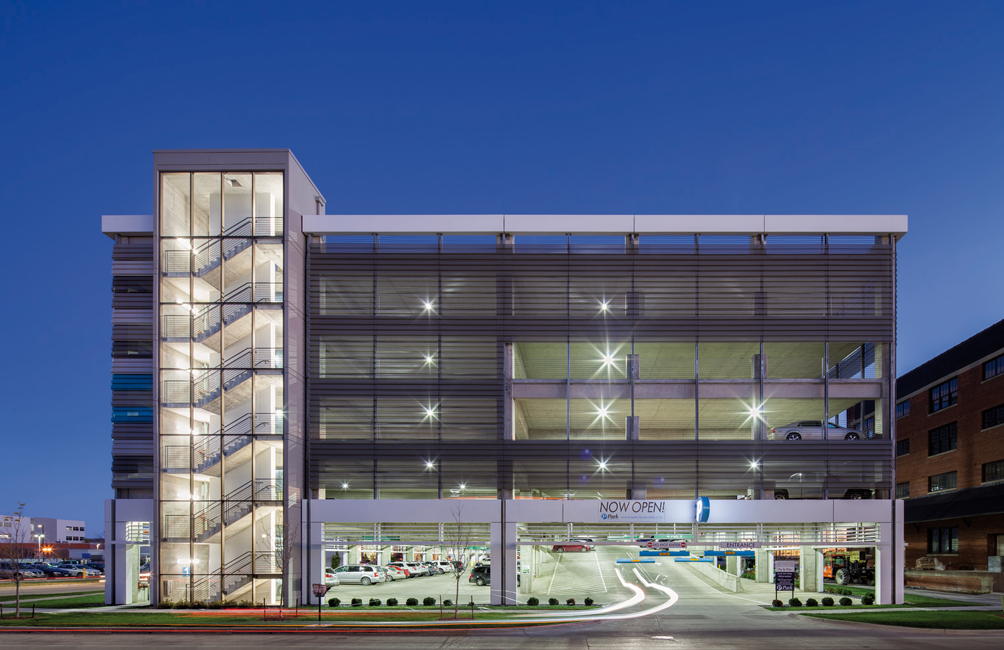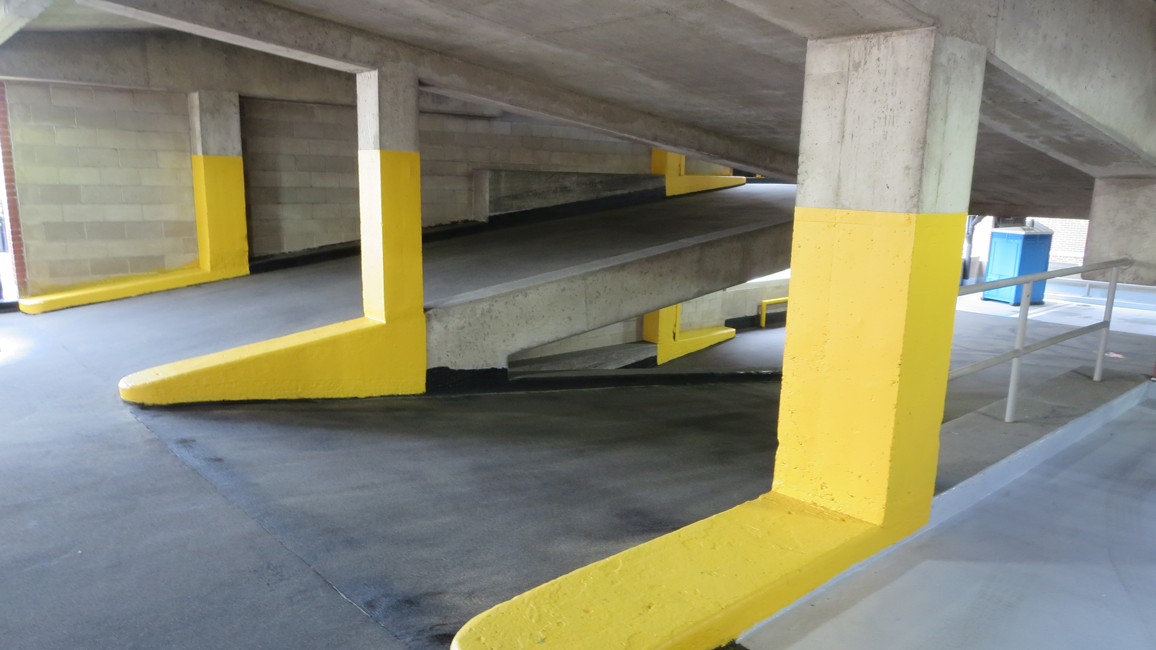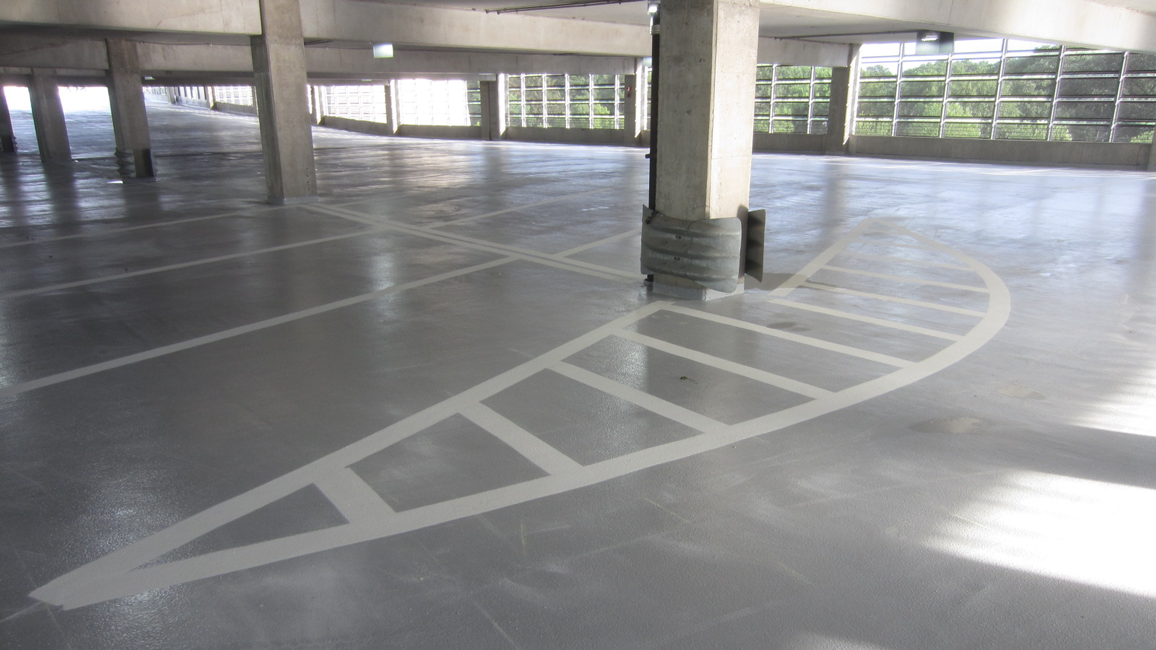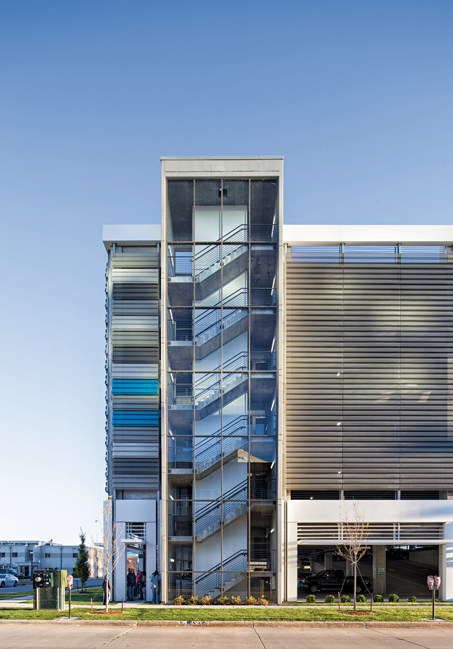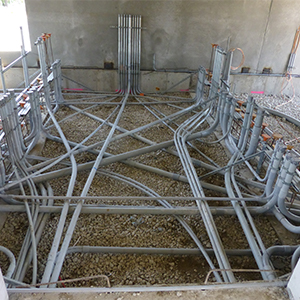Avoid expensive repairs, emergencies, and closures with preventative maintenance
Is your parking structure at risk? All of the following are warning signs that it’s time for an assessment, and most likely a repair.
- Leaks – Does your facility drip when it rains? Water infiltration is the primary cause of structural damage in a parking facility.
- Gaps – Can you see down through the parking deck? Do you have loose or missing sealant? Sealant joints are the most common location for leaks to occur.
- Damage – Have you noticed cracking or breaking concrete? This may be a sign of structural movement.
Parking facility maintenance schedule
Not sure where to start? These are the basic maintenance needs of any parking facility.
|
Protection Systems & Testing |
Purpose |
Maintenance Cycle |
|
Parking deck cleaning |
Rinse off damaging salt accumulated over the winter months |
Every spring |
|
Joint sealants |
Keep water out of the facility |
Replace every 5-7 years, depending on wear |
|
Expansion joints |
Keep water out of the facility and allow thermal movements of the structure |
Replace every 5-10 years, depending on wear |
|
Penetrating sealer |
Keep water and chlorides out of the parking deck |
Reapply every 5-7 years |
|
Waterproofing membrane |
Keep water and chlorides out of the parking deck |
Recoat every 5-10 years, depending on wear |
|
Chloride ion testing |
Determine the level of chloride contamination and risk to internal reinforcement |
Test every 5 years |
We can help! Shive-Hattery offers a full suite of support for parking structure maintenance, from assessment to repairs and maintenance plans.
Stay in Touch for Monthly Shive-Hattery Industry Insights
More Shive-Hattery Projects
Creating the foundations that support community growth.
We're Learning, Growing + Sharing
Stay on top of the latest industry trends as we share how we are staying ahead of them.
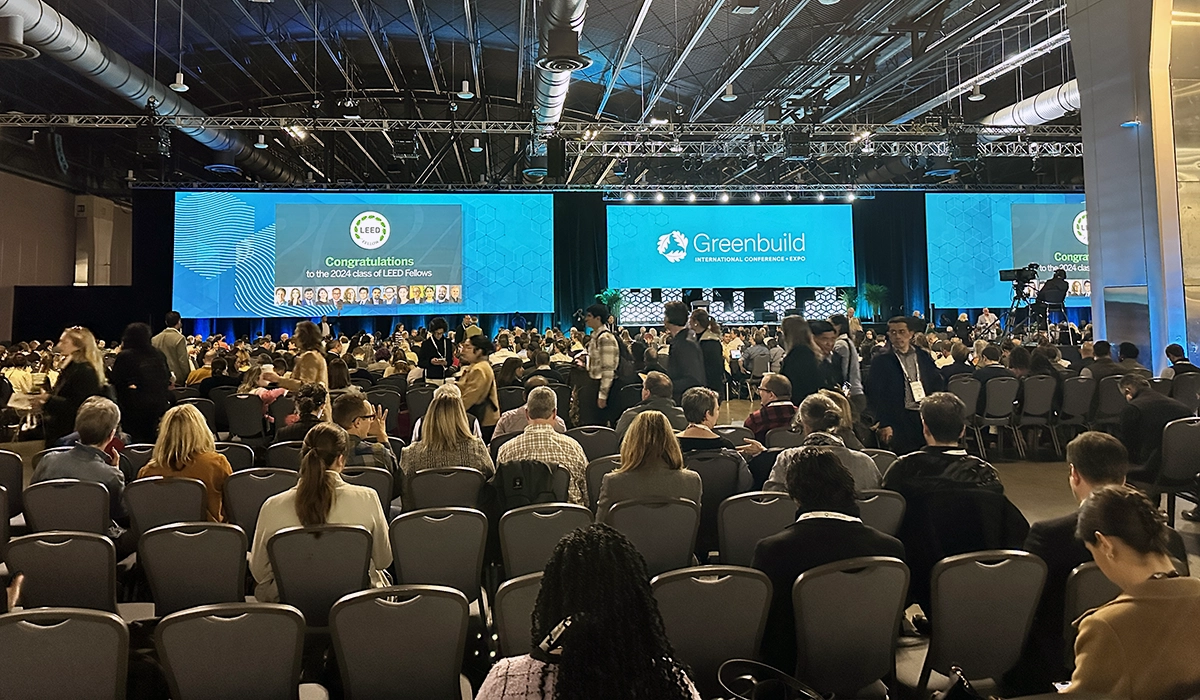
Greenbuild 2024 Recap and Key Takeaways

Earning Tax-Payer Support for Public Schools
Pre K-12

LearningSCAPES 2024 Recap: 60-second Key Takeaways
Pre K-12

